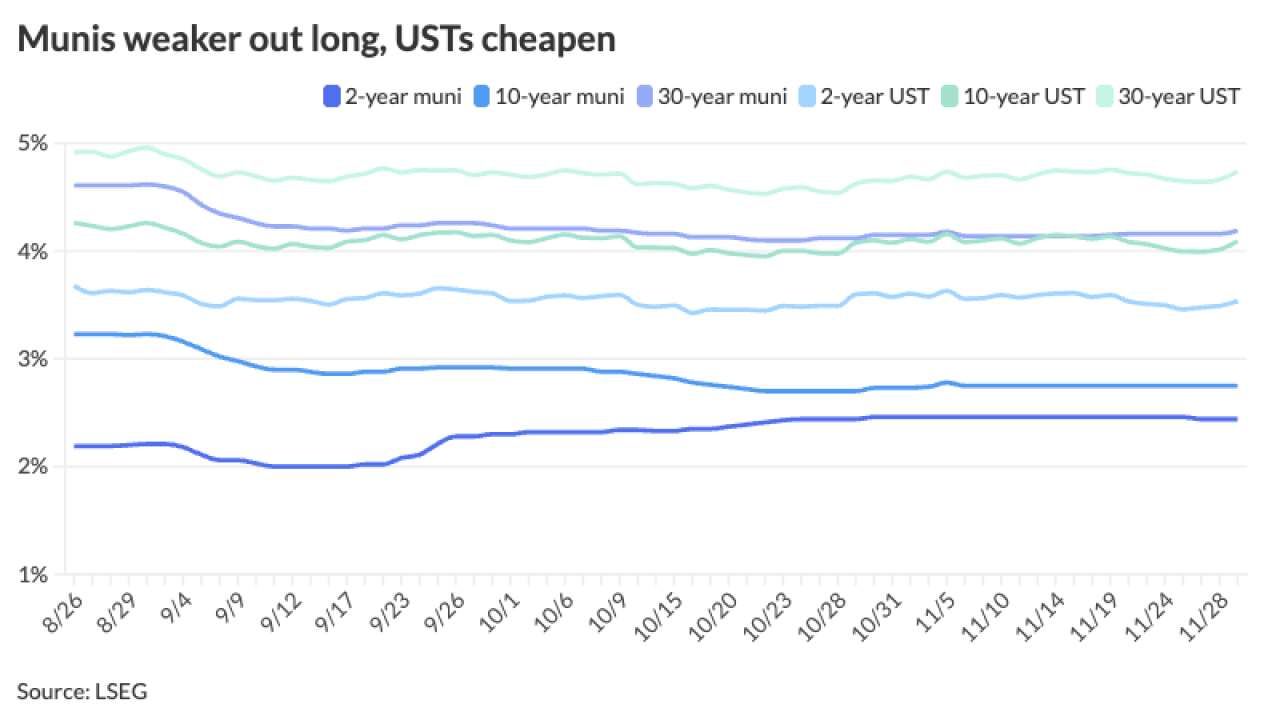The Securities and Exchange Commission's recent suspension of the Municipal Securities Rulemaking Board's rate card model is causing some confusion in the market, as the fees set for 2023 are now in effect for this year.
That's according to Mark Kim, chief executive officer at the MSRB, speaking during the Bond Buyer's 2024 National Outlook Conference. Kim took an opportunity to speak about the recent actions by the Commission which took many by surprise.
"The suspension has also caused some operational challenges and some confusion in the industry," Kim said. "The MSRB has received a number of calls from market participants about the suspension and its impact on their operations. We issued a regulatory notice clarifying the effective date of the suspension order and we'll take other further actions as necessary to minimize any disruption caused by the suspension."

The board developed the rate card model in order to provide greater transparency and accountability to the industry. That was met with initial
"We're projecting that the industry will pay greater fees in aggregate than they would have under our 2024 fees, in large part because of an operating surplus that the industry had in 2023, which we were using to effectively subsidize the 2024 rates, but the suspension prevents those rates from going into effect," Kim said.
Those affected are encouraged to submit comments to the SEC by Feb. 23. Kim also urged the audience to comment with the SEC on its move to a one minute trade reporting standard through amendments to its Rule G-14, which closes Feb. 16.
High up on the list of trends and events to note at Thursday's conference is the recent exits of Citi and UBS from the muni market. Kim was quick to dispel any concerns that the exits portend any bad signs for liquidity.
"Over the last 20 plus years that I've been in the industry, Citi has been a dominant player in the primary market and for many of those years, the top underwriter," Kim said. "But over the last several years there's been a very noticeable pullback from Citi in the primary market and in 2023, they ended the year as I believe the sixth ranked firm. We see a fairly similar pattern in Citi's participation in the secondary market," he added. "Although the news only just broke, I think market participants have seen Citi's retreat and pullback in the market over the last several years and firms have stepped up and responded and filled that gap."
Rulemaking on the Federal Data Transparency Act is expected this summer and the MSRB is helping by acting as a resource to the SEC and Treasury to provide some guidance on data in the muni market.
"The MSRB is providing technical assistance to Treasury and the SEC with respect to the types of data and the format's of the data that we have, what we do with the data and how we store it, etc.," Kim said. "That is, I believe, helping to inform Treasury and the SEC in terms of the type and quality of data that exists in our market, but in terms of the establishment of the data standards themselves, the MSRB certainly is not involved in that process."





